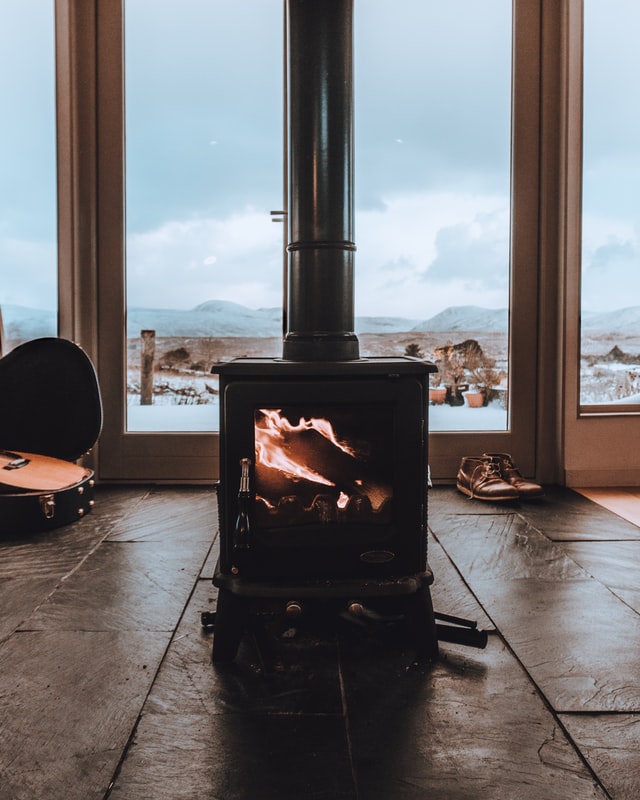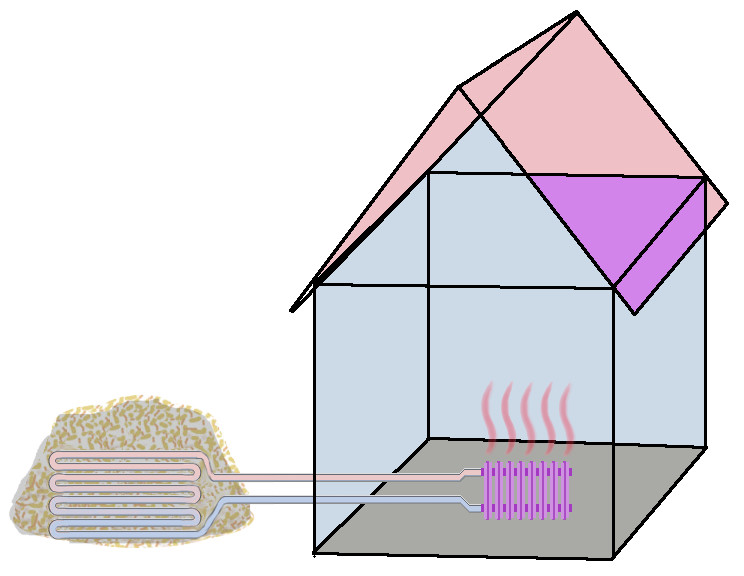
Heating
Many homeowners wonder which heating is the right choice for their home. The particularly large selection of modern systems makes a clear answer almost impossible. Because depending on the local conditions and the habits of the users, different technologies come into consideration.
The energetic state of the building
An old, poorly insulated building loses a lot of energy through its envelope. To compensate for these losses, radiators with high flow temperatures are usually required. In contrast, environmental heating systems such as the heat pump only save energy when the temperatures in the heating system are low. After an energetic renovation, your own house often requires much less energy than before, but buildings are often airtight sealed and homeowners have to ventilate properly. This is the only way to ensure optimal hygienic conditions and prevent mold in the home.
Available energy sources, legal status
The available energy sources also affect which heating is suitable for a building. If homeowners have no space in or in front of the building, this can be a criterion against wood heating. Because no matter whether with logs or pellets, this requires a sufficiently large storage area. If the house is located in a water protection area, a borehole heat pump is generally prohibited.
Personal user habits
User habits are also decisive for which heating technology is the right one. If homeowners travel a lot during winter, the system should, for example, run automatically. Do you want to refill your heating once a day, once a week or once a season, consider your options.
Common heating types
Firewood and pellet heating
Wood heaters are considered CO2 neutral. This means that they only emit as much CO2 during combustion as the raw material converted into oxygen during its growth. If home owners ask themselves which heating is particularly ecological, they can find the right system with the log or pellet heating. While modern log boilers typically work only with manual effort, pellet heaters also automatically ensure a comfortably warm home. However, it is important to know that the combustion of wood and pellets produces significantly more fine dust than with other fuels.
Solar thermal heating
The first step is to find out whether your home is suitable for solar thermal energy at all. Find out whether a solar thermal system is worthwhile for your building or if while technically possible is not worth the investment. How well solar thermal systems work depends on the solar thermal emission and sun hours. In short words explained: You put black panels out, through those a freezing resistant liquid is pumped, that liquid will accumulate heat and using a heat pump transfer that energy to a water tank for your heating or warm water system. Since the size of a solar thermal system – i.e. the area of the collectors and the storage size – is precisely tailored to the needs of a family or a household, another criterion that is important for the decision. Explored further, the question of the number of house residents or m² used and following, how the heating energy requirement will develop in the next few years.
Heat pump with air, earth or water
When homeowners ask which heating system saves energy and is environmentally friendly, the heat pump is an interesting solution. Because this draws around two thirds of the heat from the environment for free. The last third alone must then be obtained using a gas or electricity process.
Assuming you have the spare power to run the heat pump it’s a good solution. However, low flow temperatures, which are possible with large radiators or surface heating, are a prerequisite for this.
Unconventional heating
Compost Heating
During composting, microorganisms do their work and transform the compost material into humus. In this process, heat is released and this principle can be used. The released heat energy can be used to heat e.B. water and thus generate energy naturally.
For this purpose, pipes are laid within the compost material through which water flows. During rotting, temperatures of 50-60 degrees occur under favorable conditions. This is completely sufficient to heat water .

Glass House
Using the same approche that most greenhouses use you can get a lot of heating passive from the sun. Covering the house in glass.
This adds a lot of options for wintergardens.
The Style has been done in hot clima like southern france as well as in the cold clima of sweden.
